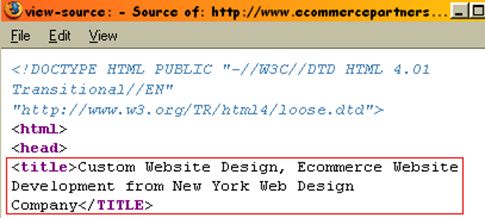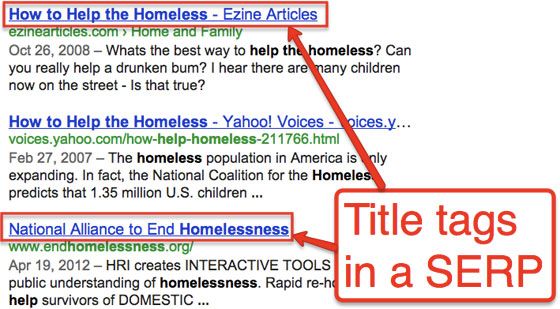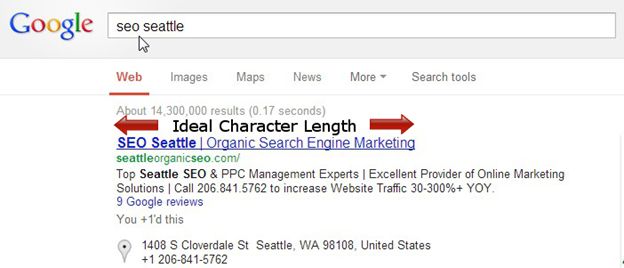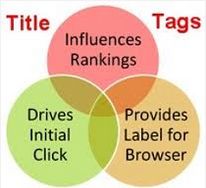Even if your website’s SEO campaign is being run by a dedicated team of professionals, it is still important that you learn the basics. This post discusses TITLE tags, one of the most important units of information that are used for optimizing various pages on a website.
1. What Is The Purpose Of Title Tag?
Web browsers such as Internet Explorer, Chrome and Firefox display your title tags as the names of tabs or windows in you open certain web pages. Every Title tag is meant to be used as the title associated with a specific URL.
2. How Do These Tags Look Like In HTML?
One example of a title tag in HTML is: <title>My Title</title>
You can add these tags on your own if you know a bit of HTML. But, having some fundamental knowledge about SEO is a must for identifying the exact titles for various pages.
3. Why Are These Tags So Important For SEO?
Search engines such as Google use Title tags to get an idea about the content on a given page.
The information from the title tags is also displayed in search engine results pages.
These tags and the descriptions below them are the only units of text that users will see before they click on page links. So, it better be good!
Keywords used in title tags weigh higher in rankings compared to other types of content.
4. What Is The Ideal Length Of A Title Tag?
Generally, there is not set limit for the length of a Title tag.
Ideally, however, you should keep them 30 to 60 characters long. Google likes short and crisp title tags that are easy to display in search results.
5. Is It Possible To Rank For Keywords Used In Title Tags?
Yes.
You can rank for your keywords listed after the cutoffs. You can do it by making titles so long that they are not displayed completely in search results.
The words coming after the cut-off point are often weighed heavily in search engines.
6. Can the Name of Brand be In the Title Tag?
A title tag should ideally define what a given page is about. So, it may or may not have the brand name in it.
Final Words
Title tags for on-page SEO should be created with great care.
This task is best left to professionals with hands-on experience in Internet marketing (and particularly on-page search engine optimization) if you are looking at long term SEO results.






